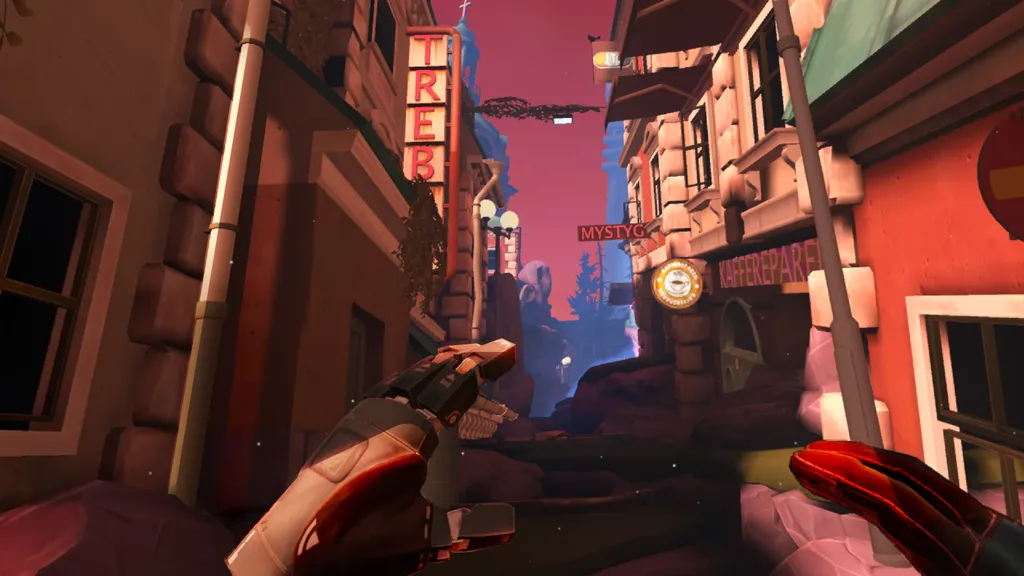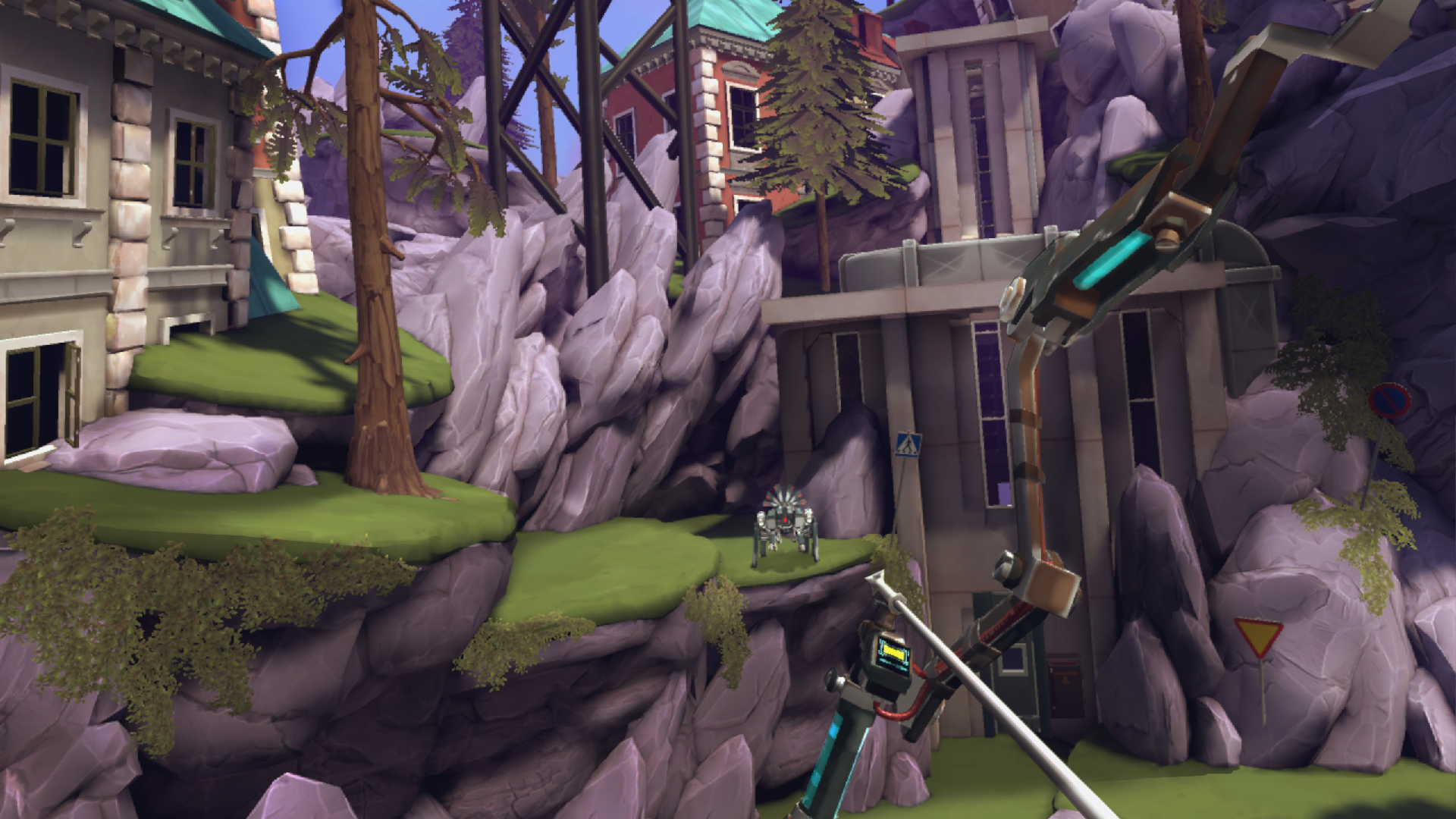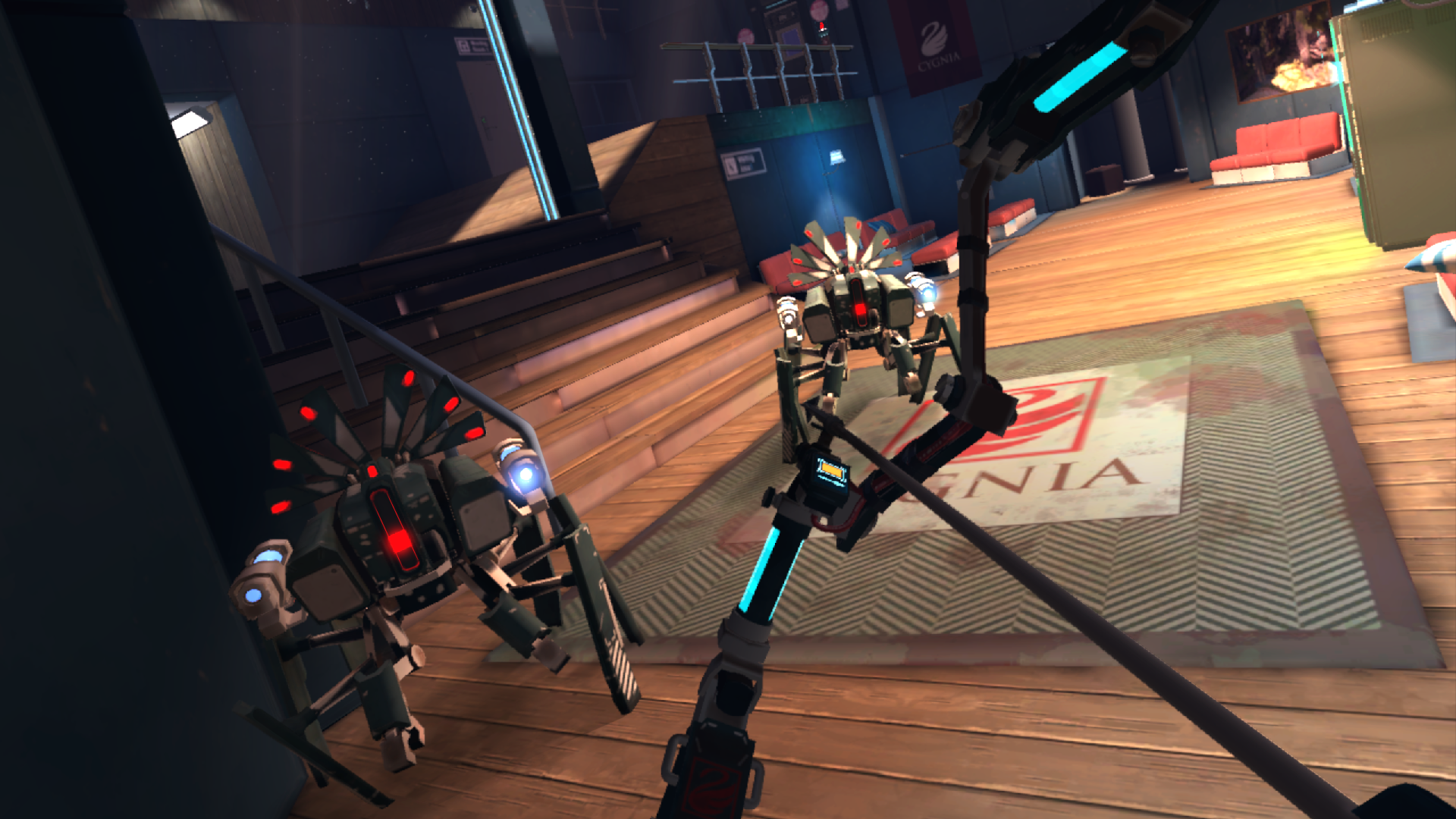Apex Construct is one of the games I expected to have some troubles fitting onto Oculus Quest. That’s largely because the game is impressive even on a PC VR platform. Here’s what we had to say about the game last year:
” From the moment you begin it’s clear that this is a ‘full’ VR game. You play as an unnamed protagonist summoned into the real world by an experimental AI named Fathr and pair up to defeat a rogue program named Mothr. Across six environments that are smartly reused over the campaign you explore the conflict between these two advanced beings as you journey through what remains of the facility in which they were created.”
A full single-player adventure with multiple levels, environments and action set pieces? Something has to give, right? Well, it does, but not quite as dramatically as you might expect.
Apex Construct is a great example of what developers can achieve when porting their PC VR games to Quest. It is, unmistakably, a visually inferior experience to all other versions of the game, but the core charm has been preserved incredibly well.
If you’re familiar with the original then some of the differences will be immediately obvious; textures are much more simplistic and have had little touches removed. The game’s first outside area, for example, swaps out details like dried up patches of grass for one-note color schemes. Rocks have lost the moss that once grew on their edges and flowing waterfalls look less convincing inside Quest.
Despite this, somehow the visuals retain their core appeal. The opening level’s sweeping vista impressed me just as much on Quest as it ever did on Rift or PSVR.
More importantly, the game remains a real thrill to play. Apex Construct’s visual downgrades serve to maintain the core experience and Fast Travel has absolutely pulled that off. In fact, the lack of wires on Quest more than made up for the visual gap between the two. I found it easier to spin around as enemies circled me and get more lost in Apex Construct’s chaotic brand of action than I ever have before. As I noted in my Oculus Quest review, I did notice a small handful of tracking hiccups, but nothing significant enough to frustrate or make me long for alternative tracking.
Still, many of the game’s original issues remain in this new version. The curtain often threatens to fall on Apex Construct’s post-apocalyptic world. Whether its events triggering when they’re not meant to, items disappearing under a fit of collisions or certain objects and even environments not loading properly, you’re never too far away from your next immersion-breaking bug. But Fast Travel has included all of the updates that have reached the game in the past year, including the Cygnia Cup survival mode it added for free. That’s more bang for your buck, especially if you consider this is a cross-buy game.
Apex Construct might have lost some of its visual sheen in the journey to Oculus Quest, but it’s all in service to the gameplay. In the heat of battle, dodging incoming projectiles and returning fire, I honestly wouldn’t be able to tell you if I was playing on Rift or Quest. That’s the goal that Facebook set itself with its new VR headset, and Apex Construct proves it’s within grasp.
Apex Construct will launch alongside Oculus Quest on May 21st. Read our Game Review Guidelines for more information on how we arrived at this score.




























